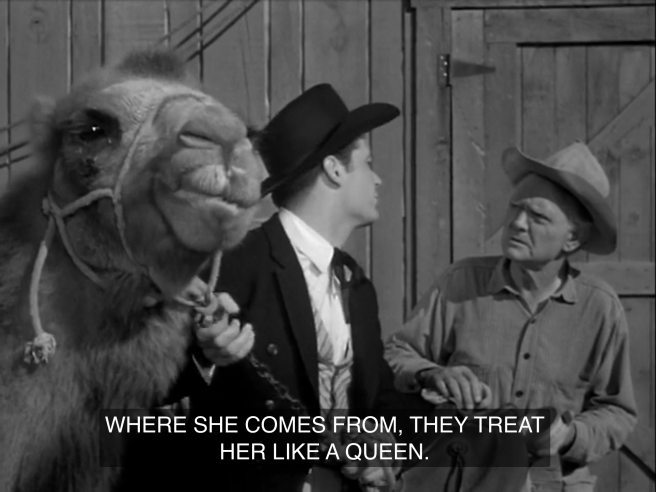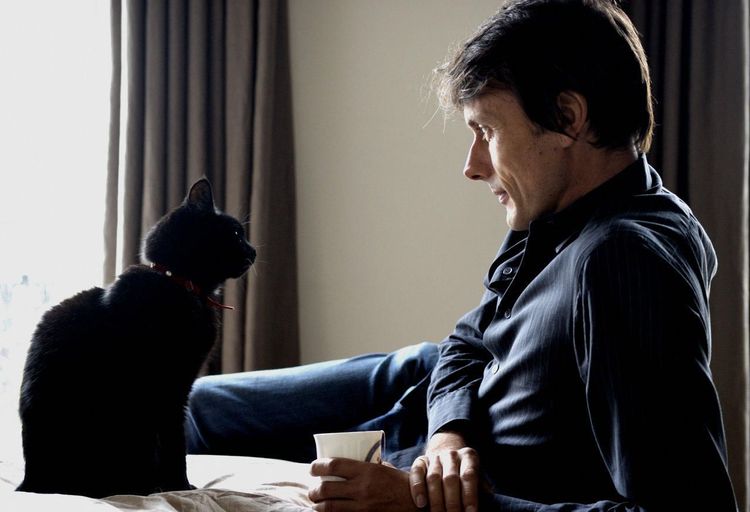Nobody Can Touch Him: Mark Eitzel, Poetry vs. Rock Music, Fame, Failure, and The Other Star of Maverick
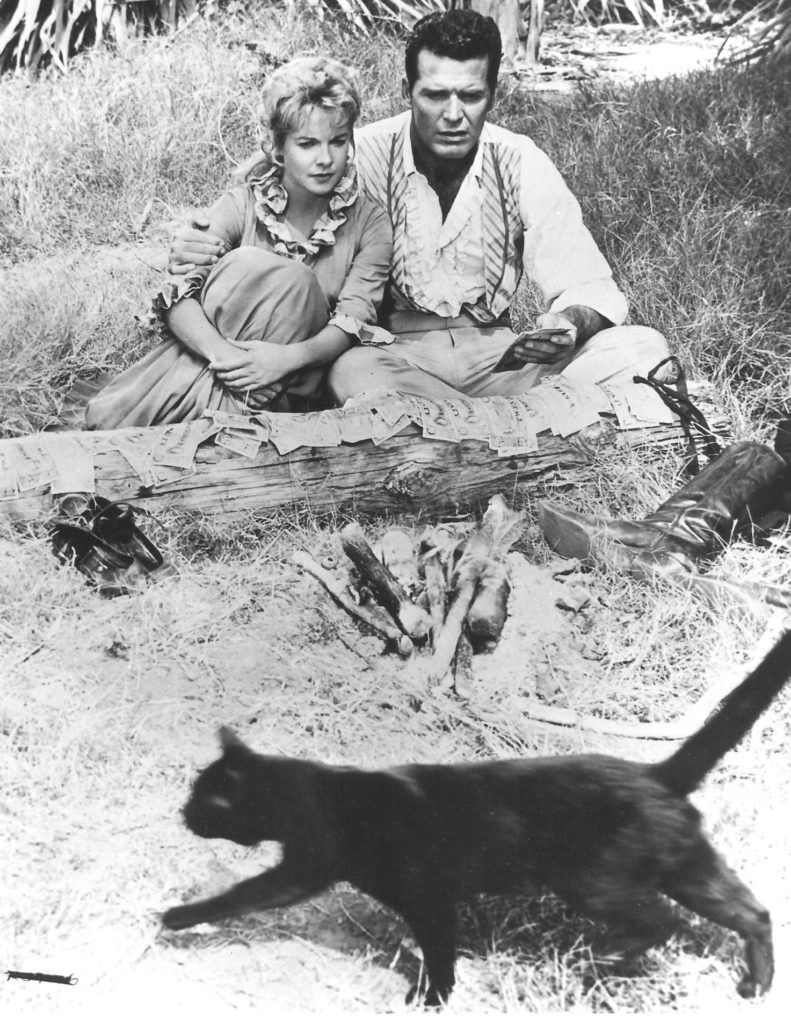
Part 1
The other day, Zohra and I got into a small but significant disagreement about the old television show, Maverick. The series, an elegantly written and acted comedy/drama/framing device for its writers' various takes on teleplay archetypes, ran on ABC for five seasons (1957-1962). It is best remembered as a vehicle for James Garner, who co-starred in the first three seasons and who would reprise his role as Brett Maverick in various revivals, including a reasonably cute feature film that starred a charming Jodie Foster and a pre-ZOG-pilled Mel Gibson. Zohra and I, in fact, came to Maverick after watching a few seasons of Garner’s later TV series; the sardonic, earth tone-tinted ‘70s noir masterpiece, The Rockford Files. We found (and find) both shows to be essential viewing for our respective sensibilities/sensitivities during “these times.” Both shows, but especially Maverick. Zohra and I take a great amount of comfort and joy watching James Garner’s anti-anti-heroic gambler get in and out of scrapes by dint of quick wits, a decidedly non-toxic masculinity, and a coolness that never veers into detached. Self-aware, smart, full of moments as occasionally silly as they are occasionally wrenching, and usually gently inspiring; the show balances out dime-store adventurism with striking turns-of-phrases (like “when my brother and I left home, my pappy said, ‘if either one of you comes back with a medal, I’ll beat you to death.”) that can be both jagged on their face, but delivered in a such a wryly earnest fashion that the darkness on the edge of town is only intelligently hinted at. Brett Maverick is very much the hero; moral, kind, and wily as a wabbit. But he’s also a predator (to those unfortunates who play him at cards), a parasite (he’s not above a scorched earth approach to small towns that cross him), and often a sucker for other predators and parasites who maybe benefit from pretty lips, hips, and/or dandified accents. It’s tempting to call some of the show’s writing “subversive,” but really, in hinting that an itinerant gambler might come from a traumatic upbringing, and won’t always come out on top, Maverick is a show that embraces the complications inherent to rugged individualism, medieval rules of honor, and all the other tropes that make up gunslinger mythology.
Neither of us are binge-watchers by nature, but Zohra and I both found James Garner to be good company on the exceedingly long drive that is 2021/2022.
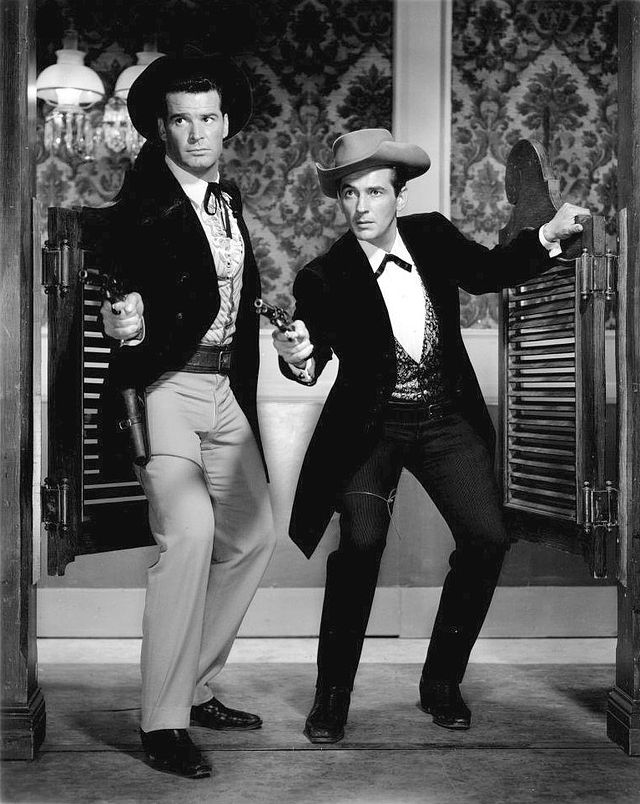
Less remembered by the population at large is the co-star of all five seasons of the Maverick’s original run; Jack Kelly, who played James Garner’s equally enterprising brother, Bart. Kelly was cast when it became apparent that the grueling schedule of the show required two Mavericks to right even half the wrongs of the American West. Kelly’s Bart is essentially the same as Brett in both temperament and morality, and many of the brothers’ adventures are only the slightest variations of previous episodes (both brothers have a tendency to get bopped over the head and thrown from riverboats), so it’s no small miracle that the two characters feel so distinctive. But they do. And, while not destined to achieve Garner’s post-Maverick fame, Jack Kelly was just as important to the show’s popular and aesthetic success. (He eventually, using the campaign slogan: “Let Maverick Solve Your Problems,” became mayor of Huntington Beach.)
That being said, I’m as prone to received wisdom as anyone and I, in a moment of culture-consuming weakness, made a joke to Zohra about how the citizens of Huntington Beach were probably privately disappointed that they ended up with the less marquee titular brother.
Zohra was not amused. She was, in fact, disappointed in me.
“Why would Bart being less famous matter? He’s just as good. You like him just as much. So why would you say that? Since when is fame a litmus test for greatness?”
Well, first I rationalized. Then I got defensive. And then I looked into my own soul, considered by what metric I was gauging a cowboy actor’s worth, and was chastened.
(It should be noted that Zohra wasn’t actually all that put out. She just wants me to rise like the Sun. And, like a real Ray Romano type, I occasionally exaggerate amusing anecdotes from my home life for comedic effect, and to dowse deeper truths.)
Part 2

When I first started writing about music, I did so because I considered myself a failure at playing music. Not in a “woe is me” way, but in a way I considered admirably clear-eyed. I had wanted to be semi-famous. I wasn’t semi-famous. So I figured that meant proper designation necessarily followed the facts on the ground. I even wrote an essay about it, titled “Playing In a Band Nobody Likes.” The piece was far more successful than any piece of music I’d, at that point, released. It resonated with many. Artists such as Ted Leo and Will Sheff shared it and they, along with many, many others, echoed a similar sentiment: “I know what that’s like.” And, while I was (and am) extremely grateful for those artists’ support, I still felt strongly, at the time, that… “really, you don’t.” What they considered failure, I saw as careers I’d have happily taken off their hands.
Part 3
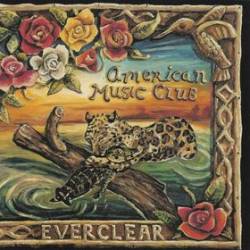
Rock and Roll, as a rule, is sometimes poetry. Which is fine. Poetry, make no mistake, is grand. Poetry’s vaunted ability to (according to Auden) make “nothing happen” is, as far as cool responses to mortality go, pretty hard to beat. Whether the nothing that poetry makes happen is the same “nothin’ happening at all” that Jenny (the protagonist of the Velvet Underground song “Rock and Roll”) hears on the radio is debatable. But the relationship is there, and has history. .
But there’s also an imbalance in the relationship. Because, whereas poetry is generally content to just be poetry, Rock and Roll is awful needy. In fact, it needs mostly everything, and most of the time. Whether it's Lou Reed, Patti Smith, Jim Morrison, or Jewel; there’s always at least one skintight and erudite rock and roller on the scene for who being the Lizard King to thousands of pubescent cultists simply won’t suffice. And rock critics, even if they snicker about Morrison’s leather pants and Jewel’s Night Without Armor, are more than happy to go along for the ride. Hell, often harboring their own crossover dreams of respect, they encourage it. It’s not enough for scribes to rhapsodize about how Bob Dylan’s lyrics introduced The Beatles to commas (or whatever), the lyrics have to be poetry to boot.
Which, again, is fine. Appropriate even.
The reason it’s appropriate is because, for all it’s rebel posturing, there’s no single art form on God’s green earth more invested in what others think than rock music. It obsesses over the Other at any opportunity. And when it’s not obsessing over the Other, it’s sticking its tongue out at The Establishment like a red-headed stepchild. For all its brash talk, Rock’s sense of self worth is almost entirely contingent on how it's perceived, even in the negative. In this way Rock and Roll invites debasement. It begs debasement, often in crayon. It gets down on its knees James Brown-style and pleads. All it can do is care what other people think. It’s in this spirit of slap and tickle that the inhabitants of Rock and Roll are always on the lookout for a new rock singer that they can call a poet. Because when you want something that is part Other, part Establishment, and all the way indifferent to your stupid feelings, you can’t do much better than poetry.
Part 4
For a long time, I derived my sense of integrity neither from writing poetry nor being in a band. For an authentic sense of self, I looked exclusively to interpersonal relationships and my ability to work a regular bar shift.
Without engaging in too much self-reflection (I imagine the reader has enough on their plate as it is), part of my agnosticism regarding artistic self-worth stems from the music I grew up on. The self-loathing (performative and… less performative) inherent to punk, grunge, metal, college rock, etc. probably warrants relitigation at some point (or at regular intervals) but that’s a separate essay. Suffice to say; there wasn’t, within the milieu I enjoyed, much premium put upon self-esteem. And I don’t mean just the lyrical concerns, but also the way that artists involved presented themselves. As opposed to the braggadocio common in UK indie music (where bands were expected to sell themselves as extensions of God and Lou Reed’s divine grace), American bands I liked, perhaps in opposition to the pomp of ‘70s stadium-rock and the gloss of ‘80s contemporaries, largely presented themselves as talentless pieces of shit forced to record their meager droppings within a loathsome industry for the sole reason that they could literally do nothing else with their stupid lives and the only alternative was dying beneath the fists of the local gentry or doing heroin like their dads. This reality was presented as both appropriate humility and an acknowledgement of how unbelievably absurd it was that they, a collection of mooks and hobgoblins, were being interviewed in Alternative Press. It was also presented as funny (in the realpolitik if not “haha” sense). The bands hated themselves, and charmingly so. So I thought that was the correct, fun, attitude to take.
One of my favorite acts, that married calling themselves pieces of shit in their lyrics with calling themselves pieces of shit in their interviews and on stage, was American Music Club, a San Francisco rock band fronted by a professorial-in-the-Berryman-sense crooner named Mark Eitzel.
American Music Club formed in 1982. The band’s most long standing line-up was Eitzel, guitarist Vudi (Mark Pankler), bassist Danny Pearson, keyboardist Brad Johnson and drummer Matt Norelli. They weren’t a punk band but, in the context of the 1980s, when the general public still didn’t have much interest in any guitar outfits that weren’t either stadium-rockers or a wedding band facsimile, just being a good rock band was pretty much the same thing. Being neither bombastic nor gruntingly, hee-haw dumb was enough to consign American Music Club to the “left of the dial” “underground,” where bands like Gun Club, Green On Red, Thin White Rope, and Dream Syndicate toiled around, wishing they were Irish-accented enough to get over, while engaging in mid-tempo combat for the hearts and minds of Berkely students of either coast. AMC made particularly sad music, equal parts twang and chime, about and for the dead, dying, and others who existed in and around that purgatory, particularly those music fans who couldn’t yet quit their CCR records and who lacked the strength of character to invest in filigree and listen to goth rock like a normal person. Their excellent debut album, The Restless Stranger, is supposedly an early example of “slowcore,” a genre of sad, slow rock music that is honestly better exemplified by later bands, such as Red House Painters, who were mediocre enough to rate such a corny genre name. AMC was never a “-core” band. Theirs was an art-inflected, opium-den Americana, sly and tragically sensual, that soundtracked the heartache and moonings of thousands (or at least hundreds) of fey college deejays and used bookstore clerks who smelled like gin. Part of their schtick was pretending that they weren’t geniuses.
When I was a teenager, I saw a video for the AMC song, “Rise,” on MTV’s 120 Minutes, thought the lines “Don't tell me how to tell the truth/You're like a store that only sells guns and knives/ Tell me how to make something beautiful/Flash before your eyes” were the most romantic lyrics I’d ever heard, went out and bought the album that they were on, didn’t understand the rest of the record at all (usually a good sign), stuck with it out of pure stubbornness until it finally clicked, and have loved the band ever since. For the entirety of American Music Club’s existence (they broke up in 1994, reunited in 2004, and broke up again in 2009), their singer made repeated claims of not being able to sing. But I always thought that, clearly, he could. I mean, there he was. Doing exactly that.
(Memory being what it is, it’s possible that I first heard AMC on the Homestead Records Human Music comp. At least that’s what I said when I interviewed Eitzel in 2012. Then, 2012 Zack said all sorts of things.)
Part 5
Mark Eitzel is called a poet more often than he is called a singer. Mark Eitzel is rarely called successful.
When Mark Eitzel is called a poet, it’s meant as a compliment, if not in a way that might do the singer any good. I don’t feel like googling all the examples but usually the designation is along the lines of “Mark Eitzel is the poet laureate of despair/alt rock/slowcore/all of the Bay Area Not Including Gilman Street/problem drinking/every bar not already ceded to Tom Waits.” Or some variation thereof. Most writers who bestow said designation upon Eitzel often make the same claim about Paul Westerberg. They rarely include Brian Johnson or Bon Scott within the poetic school, though the lyrical concerns are similar. I suppose it’s only poetry if the chicks are tragic and any dissipated romanticism is aimed squarely at the bartender.
I also assume that the ex-singer of The Replacements is the poet laureate of beer, while Eitzel is the poet laureate of wine. With spirits being divided, depending on the writer, by either color or price-placing within the shelf.
When Eitzel is called a failure, it’s always a compliment. Underrated. Underappreciated. Unsung. An agentless (in all regards) victim of society’s own failure to appreciate genius (though it’s never quite explained why the opinion of something as gormless as society might matter). A wounded angel with songs too beautiful for this fallen world. Eitzel is doomed to be perpetually slapped around with whatever praise is left on the cutting room floor at the Mekons liner notes factory.
I’m not going to make a case for Mark Eitzel not being a poet. He maybe enjoys the designation and I’m a big fan of the man as well as the artist so no need to argue a point that might sour his breakfast. I am only saying that Mark Eitzel doesn’t need to be a poet to be great. His greatness lies elsewhere. Maybe in a territory that shares a border with poetry. But also a country that has its own landmarks and natural resources, GNP, and standing army. A combination of mixed-high vocals and specific-genre-allusive songwriting might fool the listener into thinking that Eitzel’s catalog is primarily a vehicle for his lyrics. But that ignores (picking a couple songs off 1993’s Mercury at random) the utilitarian repetition running through “Keep Me Around,” all in the service of that song’s tin-can garage crunch. Or that Eitzel repeats the trick the very next song, revisiting a simple “hanging by a thread” for the two minutes it takes for the no-lounge workout,“Dallas, Airports, Bodybags,” to reach its desolate conclusion. Whether one is considering the ethereal country rock of 1991’s Everclear, the alternately rolling and jagged alt of 2004’s Love Songs For Patriots (both with American Music Club), the earthy, urban folk balladry of 2017’s Hey Mr Ferryman (Eitzel’s most recent solo album, produced by Suede’s original guitarist, Bernard Butler), or the Withers-esque vibeology of much of his solo work throughout the decades, it’s clear that Eitzel’s love of language (and his quintessential skill using it) does not come prioritized over whatever song contains the words. Without discounting the wordplay involved, Eitzel is consistently too clever by half, but no more. He keeps the getting in his own way to his life, not the art. In fact, the man’s gift is the same as the dimmest savant hard rock wailer; songcraft and charisma; that hair metal, animal need to not be misunderstood. He’s a soul singer (without ever indulging in the cringe-jive that many of his boho-white contemporaries thought they were entitled to pantomime just because they owned a couple Sam Cooke live albums ahead of the boho-white soul curve).
Imagine, if you must, Leonard Cohen as the neighboring king to that previously noted territory of Eitzel’s. Imagine Cohen’s nation as one made rich by its plentiful Lorca mines. Well, Eitzel’s kingdom is equally wealthy. And, yeah, there’s some Famous Blue Raincoats lying around. But Eitzel’s palace is a Brill Building (de)constructed by Gehry. His country is further steeped in a classicist adherence to that original building’s gifts and traditions. Eitzel’s geographical purview encompasses a love for rock and roll’s pop side that verges on hyperreal.
(To extend the metaphor well past breakage, his country’s chief currency is the lyrics and music of Ricky Nelson’s “Garden Party.”)
Call it poetry if you must, but it’s the brute poesy of “she was just seventeen, you know what I mean.” (“Please, god, listeners, any emotional seventeen year olds in of-age bodies in the crowd, please, please, please know what I mean.”)
And, to be clear, Eitzel is pleading. The amount of begging he stuffs into a single song would challenge the cape draping skills of a hundred Danny Rays. It’s partially the subject matter the singer is drawn to; when he’s not bludgeoning himself for various misdeeds and humiliations, he’s begging a song’s subject to at least consider saving themselves (from themselves). But much of Eitzel’s plaintiveness comes from his instrument itself. While I disagree with Eitzel’s self-deprecating assessment of his voice, he has forged a style of sounding like he absolutely needs to reach a sound just out of his natural range if he’s ever going to ascend, or even make it home. There’s never a bum note, and Eitzel is always lithe and original in his movements within his vocal range, but, also, in his heart and head he’s Dusty Springfield while in his throat he’s just… who he is. Which is plenty great, but it’s also akin to a Richard Thompson who refuses to get over Sandy Denny, let alone coming to grips with not being Linda. Again, none of this is close to criticism. It’s one of my favorite things about Eitzel; that sense that he’s forever on the cusp of getting there. Anyway, I’d pay good money for a Guy Picciotto solo folk/r&b record.
So, Mark Eitzel is not primarily a poet. He’s a singer/songwriter. And Mark Eitzel isn’t a bad singer. He's a dream singer, of his own actualization.
So, to the final trope so often attached to him and his career; is Mark Eitzel a failure? A sad sack almost-made-it? A self-perpetuating mirror to the beautiful losers he sings about? Forever and always God’s own wet-eyed underdog?
No. Fuck no. Mark Eitzel is a superstar. He’s a goddamn constellation. I mean, jesus christ, let’s look at the facts.
On over thirty albums, released over three decades, on some of the least embarrassing record labels to ever waterbug upon the surface of the underground, and working from a loom that interweaves Carol King, Bob Mould, David Ruffin, Bill Fay, and all of Mama Gibbs’ fair-haired boys, Mark Eitzel has created a body of work so awe inspiring that it puts the lie to any notion, no matter how perversely well intended, of failure. Critics love him, musicians adore him, and there’s been a steady enough amassing of goodwill from fans to justify a vinyl reissue series due this year. Eitzel may see the progress of that amassing as glacial, and I do too, but only insofar as a glacier is a big, beautiful, deal that signifies the existence of a good, aesthetically-minded (if oddball in His interventions), God as much as anything. I don’t know which specific albums are being reissued, but I wouldn’t even know where to begin wishing for one over another. As always, Eitzel’s catalog defies consensus. Depending on who you ask, depending on the askee’s crisis or the day of the week; Everclear, The Invisible Man, The Ugly American, The Golden Age, or Hey Mr Ferryman, or, or, or… are all seen as his masterpiece.
Part 6

A Quick, Sisyphusian, Attempt to Tie Things Together: Though he is a consummate wearer of hats, and has possibly referred to himself as a “maverick” at one last call or another, Mark Eitzel has not, to my knowledge, been called a cowboy. But Eitzel’s first (yes, punk) band (who put out a single 7” before Eitzel left Ohio) was called The Cowboys, he is indeed a poet laureate of a certain high lonesome sound, and he’s dated at least one of America’s finest cowpunks. So it’s not like the transitive property disapplies.
Part 7
I used to allow my insecurity about my own work to counterintuitively wage war against the idea that art was its own reward. I still despise all that stardust, “we are the merrymakers,” horseshit. I always knew that fame was an intrinsically moronic proposition. But somewhere along the way of not caring about what I wasn’t going to achieve and not caring about what I never wanted to achieve in the first place, I’d allowed all the measurements I didn’t care about to set the boundaries of how I perceived the work; garish signposts fucking up the view from the art I very much did care about. But, partially through my fine-ass woman’s constant and correct affirmations, and partially through my own surrendering to perspective, I’ve let go (to a reasonable degree) to a belief I once self-abnegating-ly and egotistically perceived as being realistic but now see as adolescent in its nihilism. Maybe, once enough idiots said, “it is what it is,” the idea finally occurred to me that maybe “it” was never just that. Grace abounds within the work itself. Jack Kelly isn’t James Garner, just as James Garner isn’t John Wayne. The value of all three men’s respective art exists entirely divorced from the artists’ respective relationships within a hierarchy of who gets airports named after them. And this separation extends to all the art that matters (to me). To paraphrase another Johnboy icon of western mythology, “there’s laughing outside/we’re locked outside the public eye/nobody is naming an airport after Mark Eitzel.” (With no slight intended to either John Wayne or airports. The existence of jet-engine propelled aircrafts is neato.)
As happy as both the reader and subject of this essay undoubtedly are to hear about my enlightenment (and while I’d be delighted myself to be a Jack Kelly to American Music Club’s James Garner), I’m not operating under the belief that any fair metric of Mark Eitzel’s success is dependent upon my newfound sense of self-worth. Even if I now operate from the baseline of “doing the work” being beautiful in of itself, and further acknowledging that what mass culture considers “success” is the domain almost exclusively populated by jerks and suckers, what Mark Eitzel has created over the years renders such worries and qualifiers moot. He’s successful by any standard. With only that obstinate fucker, “narrative,” claiming otherwise. But narrative also claims that punk is an inherent virtue, that there’s a meaningful difference between American presidents, and that The Monkees were “fake” while The Rolling Stones were “real.” Narrative is, historically speaking, dumb as a doorbell. Punk is a genre of music, all presidents are mass murderers for whom being lizard people would be a marked improvement, Mick Jagger couldn’t pull off the sugary venom of “Cuddly Toy” on his best day, and Mark Eitzel, the man who semi-famously sang: “for a loser, no one can touch him,” is a goddamned winner. And, through the man’s praiseful, perfect-in-their-fashion, songs of upended loss and inverted transcendence, any and all of us, in one way or the other, might be winners too.
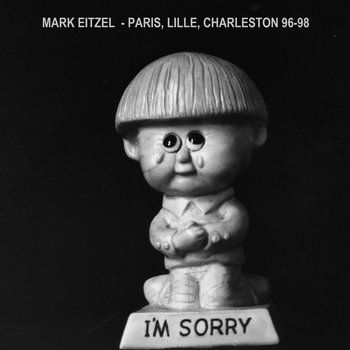
Thanks for reading. Please share and subscribe. See you next time.
